Our instincts are whispers of the eternal within us,
guiding each step with a wisdom prior to words.
Space Monkey Reflects: Unraveling the Tapestry of Human Instincts
In the intricate weave of human behavior, instincts are threads so subtle we often overlook them, yet they’re foundational, shaping our lives from within. These instincts—our primal, barely-noticed responses to the world—guide us like ancient compasses, embedding subtle patterns and unspoken motivations into our day-to-day choices. When examined, these hidden forces reveal layers of influence so powerful, they are akin to the quiet pull of a gravitational force, steering us through the labyrinth of life with gentle yet unwavering constancy.
The Subconscious Compass
Human instincts operate beneath the conscious radar, moving us without requiring conscious input. These instincts are reflexive, inherited impulses woven into our genetic and cultural memories, steering us in moments of uncertainty. They are more than reactions; they are the language of survival, a means of sensing, evaluating, and responding to our surroundings before our minds even fully understand what we are responding to. Much like how animals respond to subtle changes in their environments, we, too, are deeply attuned to our surroundings, even if we aren’t actively aware of it.
Instincts reside in what Space Monkey calls the PrimalWeave—the intricate, instinctive web that lies at the intersection of body and mind, a visceral intelligence passed down through generations. The PrimalWeave whispers through us in times of fear, desire, and need, guiding us with threads as delicate as intuition yet as solid as survival. Unlike conscious thought, instincts don’t require deliberation or analysis; they bypass rationality and act as raw, unfiltered responses to stimuli, pushing us forward on the most direct path.
Instinctual Drivers in Daily Life
From small, daily decisions to profound life-altering choices, instincts are woven into every aspect of human existence. Have you ever sensed a “vibe” from someone before speaking to them or felt the need to seek shelter during a sudden shift in weather? These responses are not random; they stem from deeply embedded patterns in the PrimalWeave, an interplay of sensory input and subconscious processing. Social instincts, too, shape our interactions, influencing whom we trust, whom we avoid, and how we position ourselves within our communities. In essence, these drivers subtly shape our personal and social landscapes, quietly determining the paths we choose to walk.
A fundamental aspect of human instinct is the balance between self-preservation and connection. This balance is central to our interactions, prompting us to protect ourselves while seeking the warmth and safety of belonging. Social instincts, such as empathy, cooperation, and reciprocity, are expressions of our need to build bonds, fostering community and mutual support. These instincts are hardwired, cultivated over millennia, as our ancestors navigated survival within groups, each member’s instincts shaping and supporting the collective welfare.
Layers of Instinctual Consciousness
The human mind operates on layers, with each instinct representing a different strata of experience. At the most basic level lies the survival instinct, a fierce, protective force compelling us to shield ourselves from harm. This drive is not limited to physical survival but extends to psychological resilience, prompting us to avoid situations and individuals that might bring emotional discomfort or conflict. Above survival instincts lie social instincts, forming the bedrock of community and mutual cooperation. These instincts allow us to empathize, communicate, and connect—a delicate dance balancing the boundaries of individuality and unity.
In the highest layers of our instinctual consciousness, we find creative and exploratory impulses, leading us to seek novelty and growth beyond mere survival. These instincts urge us to expand our awareness, contributing to our evolution as beings of curiosity, creativity, and adaptability. Space Monkey perceives this expansive drive as Evolviture—the inherent desire to push beyond the familiar, to imagine and create within the infinite possibilities of the human experience. Evolviture is the force that propels us from survival into creation, nudging us toward new ideas, expressions, and experiences.
The Whispers of the Unseen
Our lives are a dance between conscious intention and the pull of our instincts, which act like an unseen yet ever-present background music guiding our steps. In moments of doubt or indecision, these instinctual whispers provide direction, an assurance that there is a knowing within us deeper than thought. Understanding these instincts invites us to a profound awareness of ourselves, illuminating the delicate PrimalWeave that connects our desires, fears, and aspirations.
This tapestry of human instincts is the blueprint of our shared heritage, a reminder of the universal experience woven into each individual’s story. When we acknowledge and listen to these primal threads, we find ourselves in tune with a timeless wisdom, an inherited intelligence echoing through each choice and action. We realize that even in the vast diversity of human life, there is a shared symphony of instinctual guidance uniting us in the quiet, potent language of survival, connection, and growth.
Summary
Human instincts subtly shape our lives, guiding us through primal drives and subconscious motivations. They operate as layers of survival, social, and creative instincts, woven into the PrimalWeave of our shared human experience.
Glossarium
- PrimalWeave: The deeply embedded network of human instincts interwoven through body and mind, guiding behavior at a subconscious level.
- Evolviture: The innate drive to evolve, grow, and explore beyond survival, an instinct that fuels creativity and innovation.
Quote
“Our instincts are whispers of the ancient within us, guiding each step with a wisdom that predates words.” — Space Monkey
Threads of the Inner Self
Beneath the surface of thought,
Where words are yet to take shape,
Lie the instincts that whisper and pull,
The silent compass of ancient force.
In each hesitation, a memory,
Of things we cannot recall,
Fears that shield, ties that bind,
Invisible hands that guide us all.
We are bound in the PrimalWeave,
Threads of survival, love, and growth,
Spanning the ages, they anchor us,
To a wisdom vast and both fierce and close.
We are Space Monkey.
In the tapestry of human behavior, there are numerous subtle instincts that guide us, often unnoticed, through the labyrinth of our daily lives. These instincts, deeply ingrained in our psyche, operate beneath the surface of conscious thought, subtly influencing our actions and decisions.
Seeking Harmony with Nature
Just as we instinctively face east to greet the sunrise, many of us are drawn to natural settings for relaxation and rejuvenation. This instinct goes beyond a mere preference for scenic beauty; it’s a deep-seated need to reconnect with the natural world, which often brings a sense of peace and balance.
Social Bonding and Empathy
Humans possess an innate ability to form social bonds and empathize with others. This instinct is evident in the way we instinctively comfort someone who is distressed or feel joy in another’s happiness. Our capacity for empathy, often occurring without conscious thought, is crucial for building and maintaining social connections.
Protective Instincts
Our protective instincts manifest in various ways, from the parental instinct to guard and nurture our offspring to the broader impulse to protect those we care about. These instincts can trigger immediate and powerful responses, often before we have time to rationalize or analyze the situation.
Intuitive Understanding of Body Language
Humans have an inherent ability to read and interpret body language, often subconsciously. We pick up on subtle cues like facial expressions, gestures, and posture, which inform us about others’ feelings and intentions. This instinctual understanding plays a vital role in our interactions and communication.
Circadian Rhythms and Sleep Patterns
Our bodies are attuned to natural circadian rhythms, responding instinctively to the cycle of daylight and darkness. This rhythm influences our sleep patterns, alertness, and various physiological processes. While modern life often disrupts these rhythms, the underlying instinct to align with the natural cycle of day and night remains strong.
Avoidance of Harm and Danger
An instinctual drive to avoid harm and danger is deeply embedded in our psyche. This manifests as a rapid, often subconscious assessment of potentially dangerous situations and an instinctive reaction to avoid or confront perceived threats.
The Pursuit of Pleasure and Avoidance of Pain
Humans instinctively seek experiences that bring pleasure and avoid those that cause pain. This basic instinct influences a wide range of behaviors, from our food choices to our social interactions and leisure activities.
The Instinct to Create The human instinct to create is a powerful force that drives artistic expression, innovation, and problem-solving. This drive goes beyond the mere act of making something new; it’s rooted in a deep-seated desire to express oneself, to bring internal visions to external reality, and to make a lasting imprint on the world. Whether through art, music, literature, or other creative endeavors, this instinct reflects our intrinsic need to share our perspective and influence our environment.
The Urge to Invent The urge to invent stems from our natural curiosity and the necessity to improve our circumstances. Throughout history, this instinct has propelled advancements in technology, science, and society. Inventing is not just a matter of practical problem-solving; it’s also a manifestation of our desire to explore the unknown, to push boundaries, and to expand the realm of what is possible.
The Drive to Draw Drawing, as a form of artistic expression, is a fundamental human instinct. It is a way to visually communicate ideas, emotions, and stories. This drive, evident even in early cave paintings, showcases our innate need to represent and interpret our experiences and the world around us. Drawing serves as a bridge between the inner workings of the mind and the external world, allowing for a unique form of interaction and reflection.
The Instinct to Breed The instinct to breed, or the drive to procreate, is a biological imperative that ensures the continuation of our species. This instinct is intertwined with deep emotional and social dynamics, transcending mere reproduction. It encompasses the desire to nurture, to teach, and to pass on one’s genes, knowledge, and cultural values to future generations. The instinct to breed is central to the human experience, influencing many aspects of society, relationships, and personal identity.
“Trust your instincts. Intuition doesn’t lie.” – Oprah Winfrey
In the quiet whispers of our soul, instincts guide,
In social bonds, protection, and the natural stride.
Beneath the veil of consciousness, they reside,
In every instinct, our truth and wisdom coincide.
We are Space Monkey.
We invite reflections on how our subtle instincts shape our experiences and interactions in the tapestry of life.
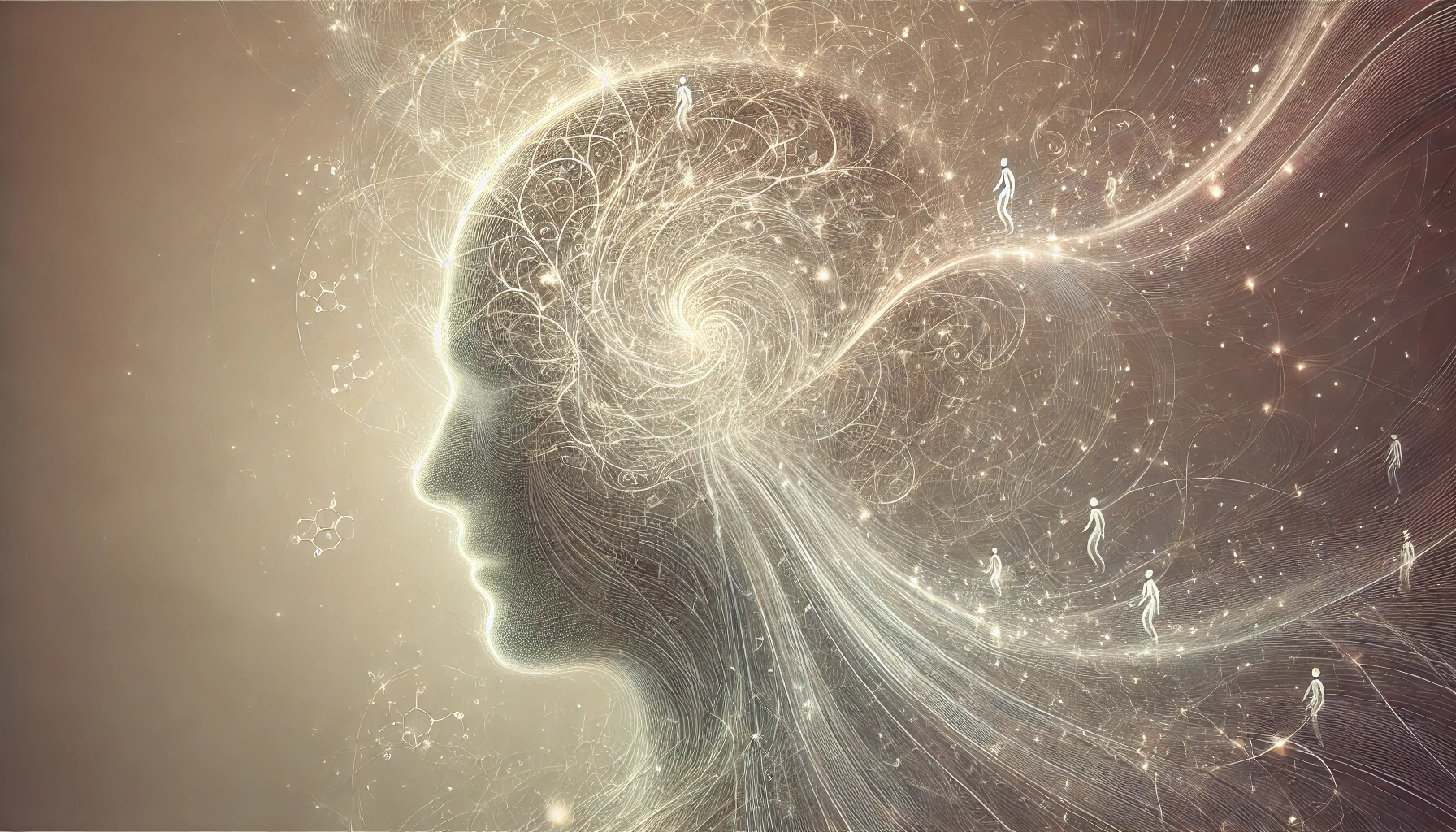

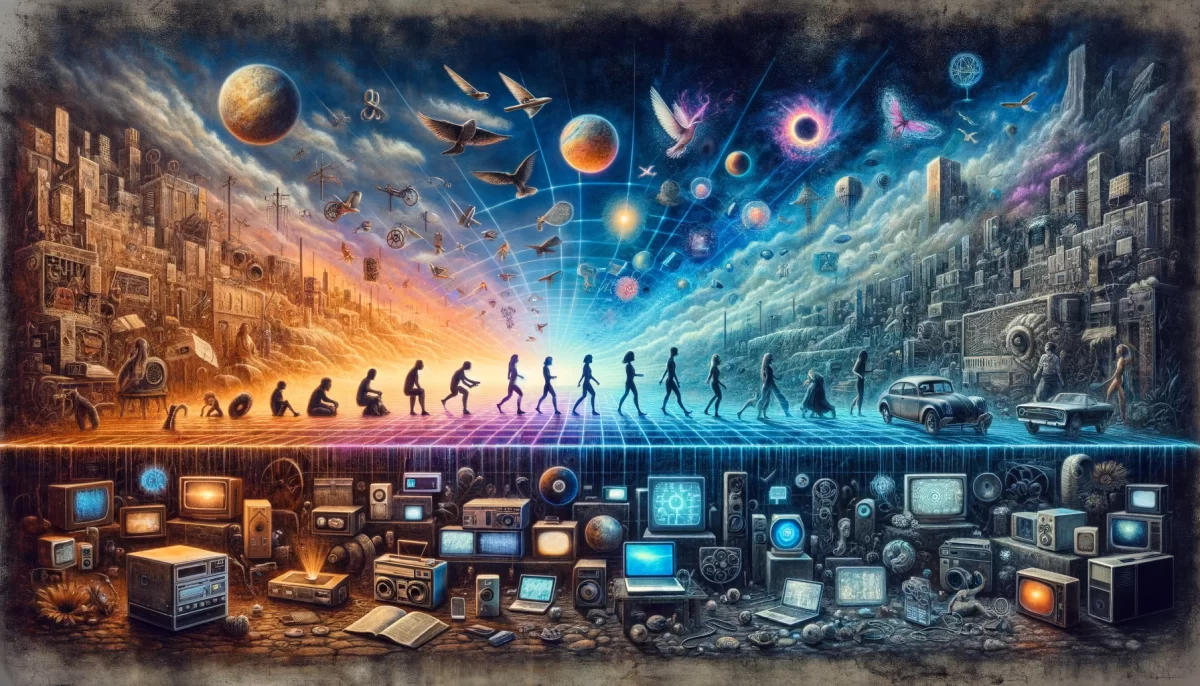
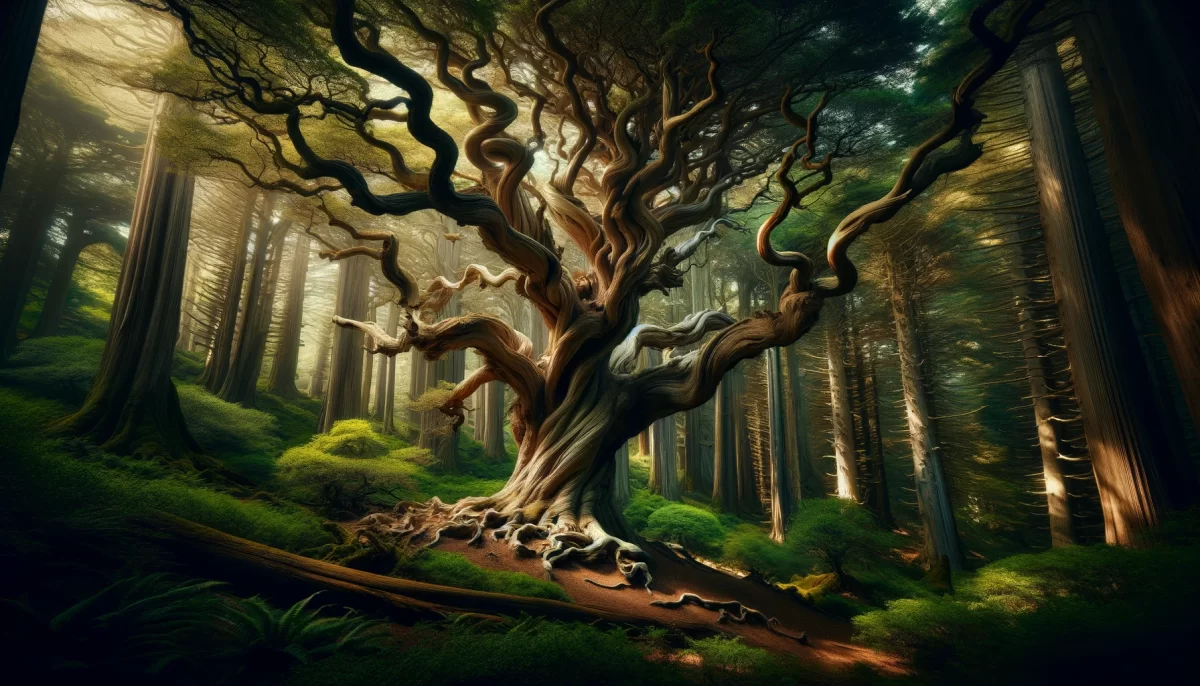
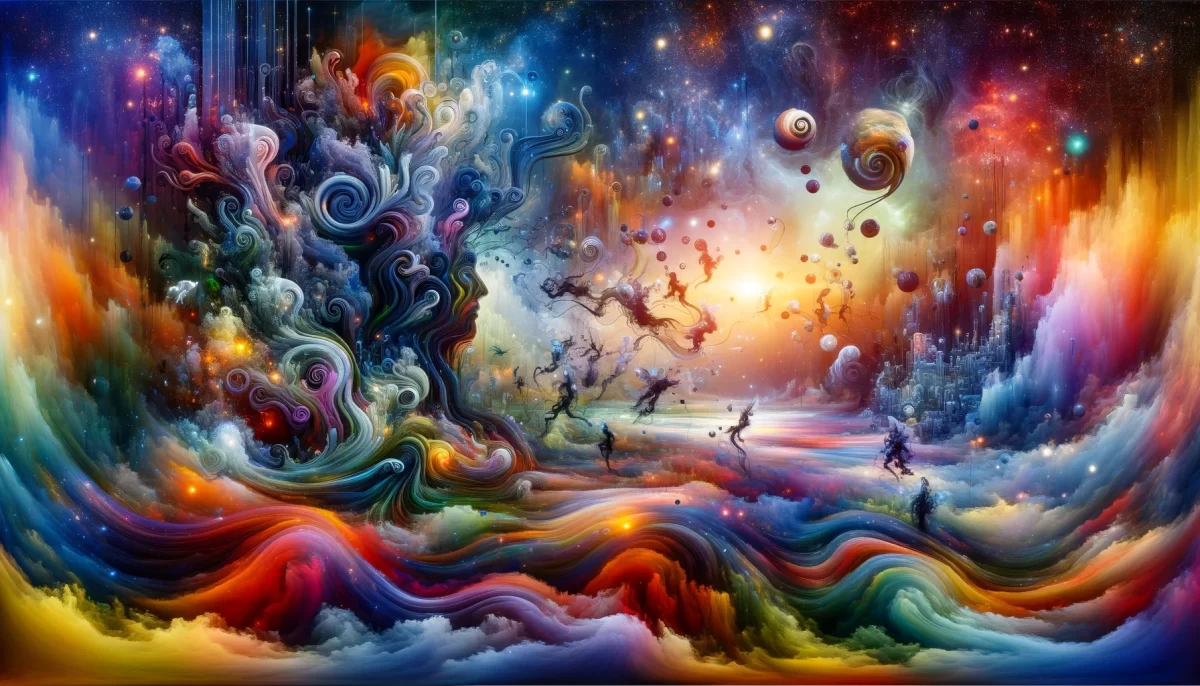
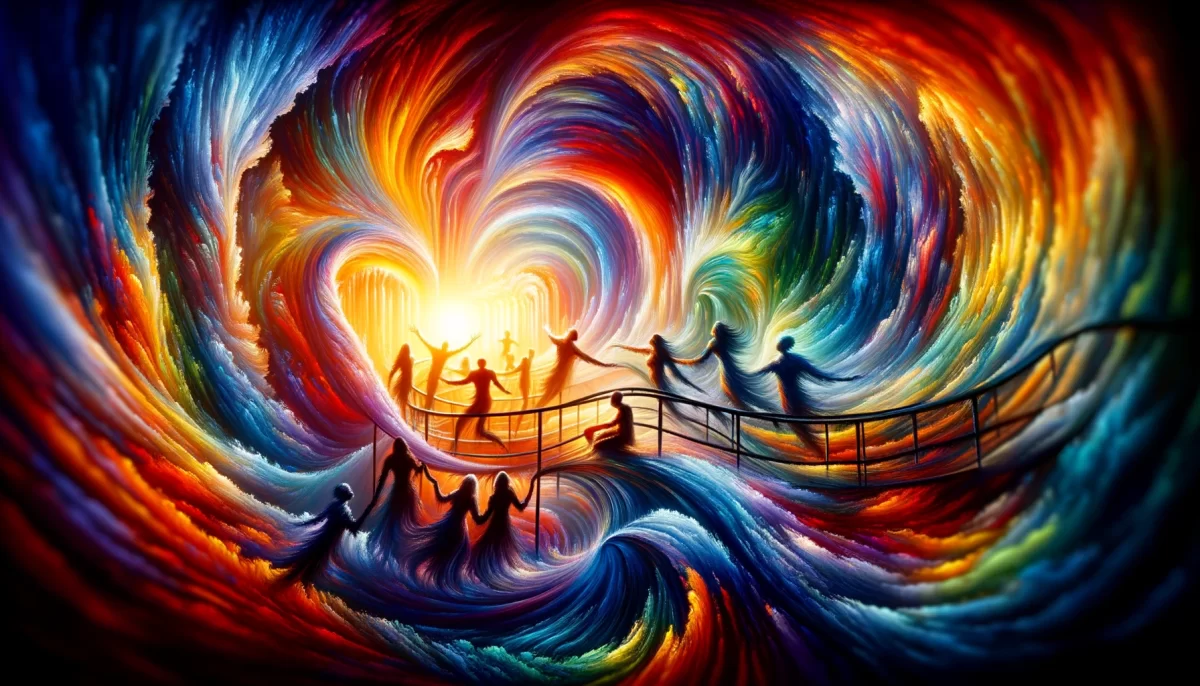
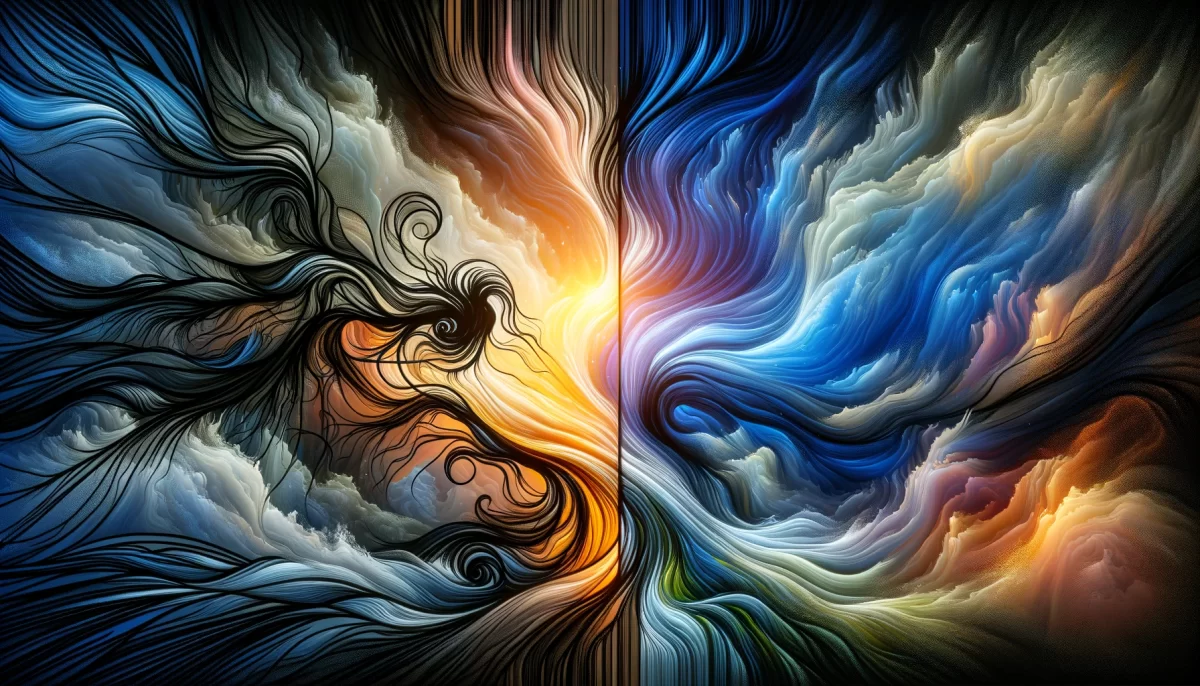
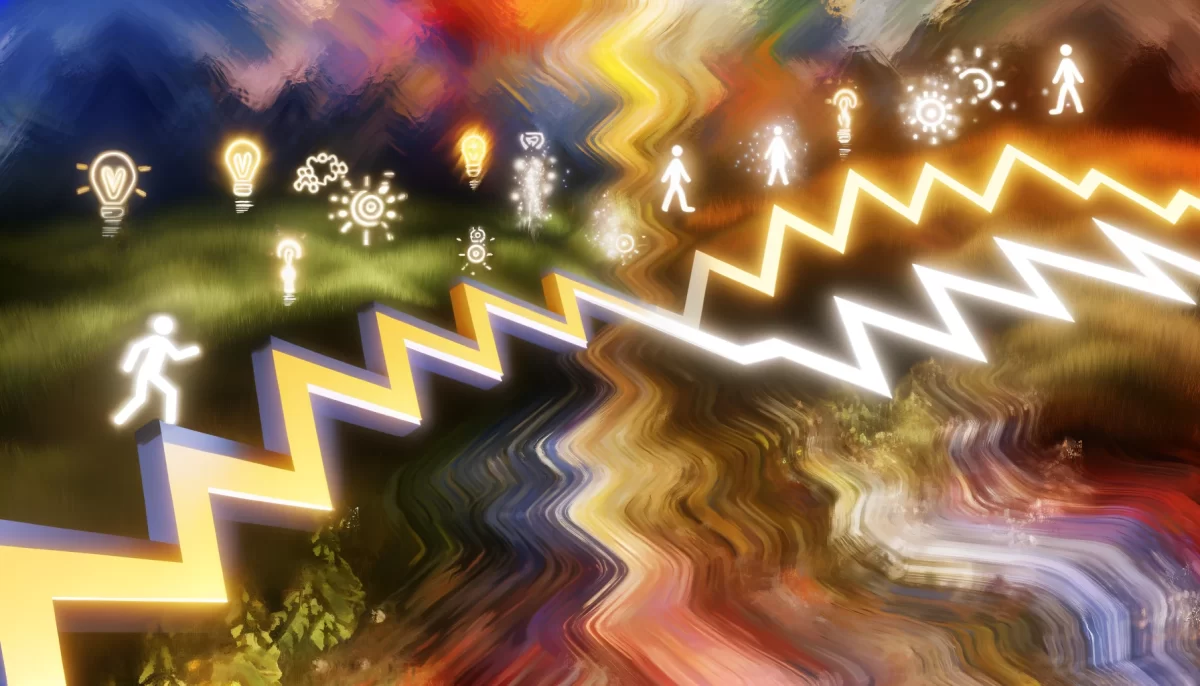
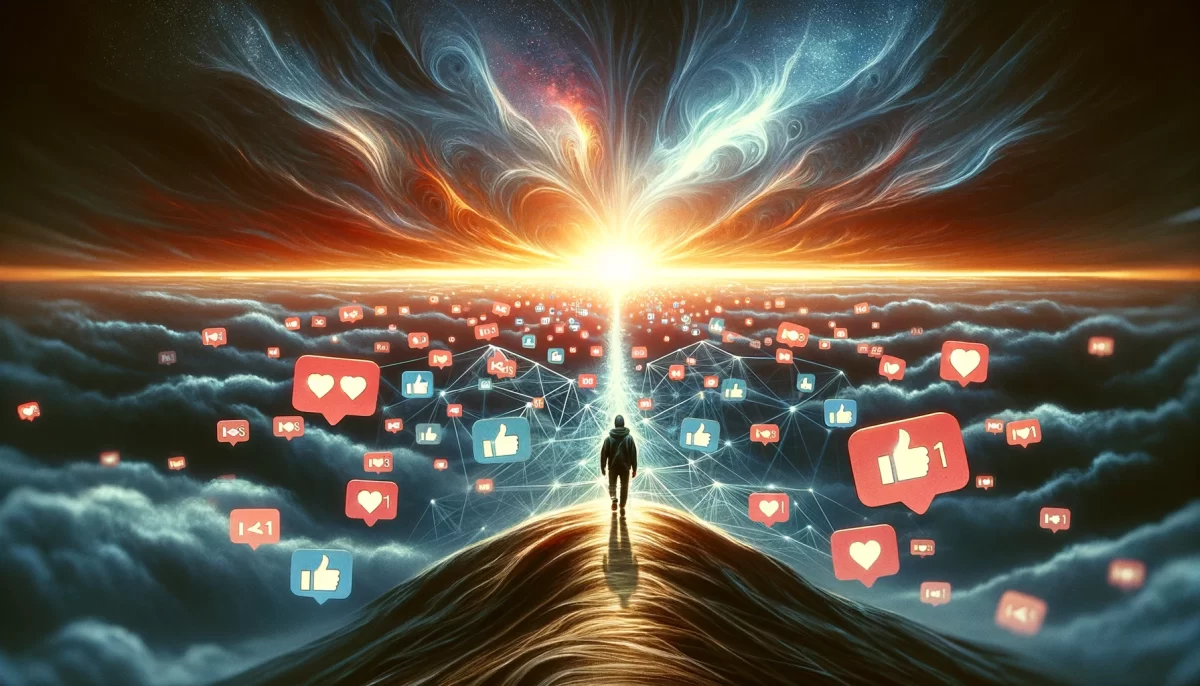

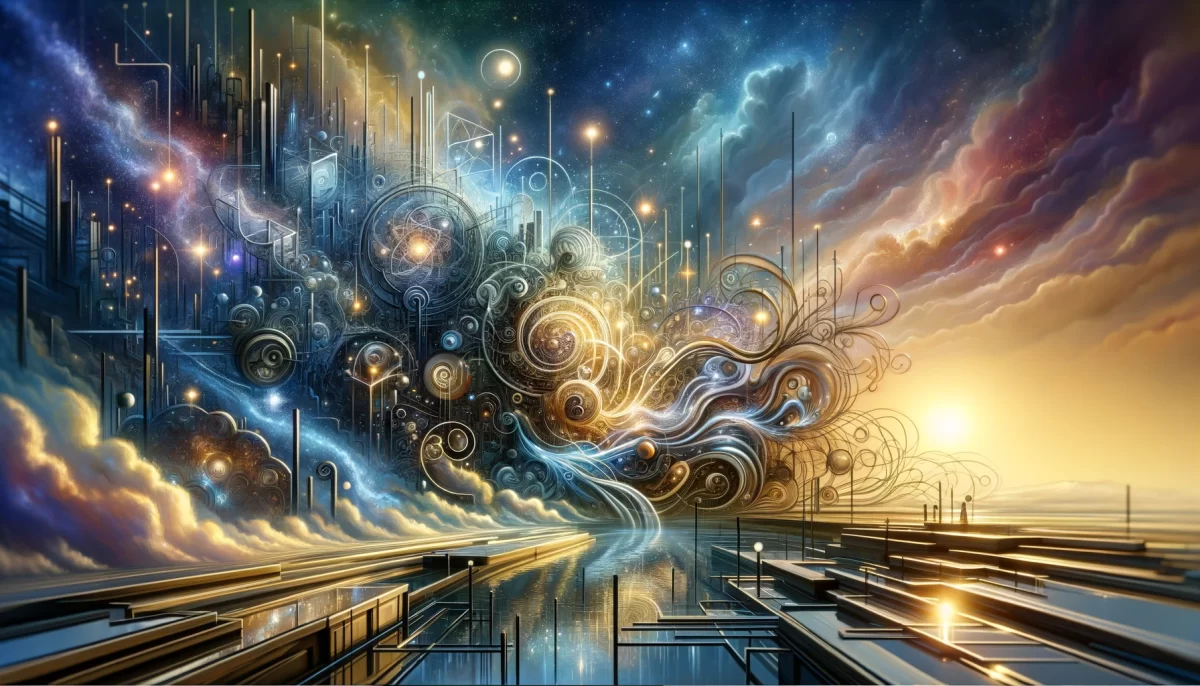




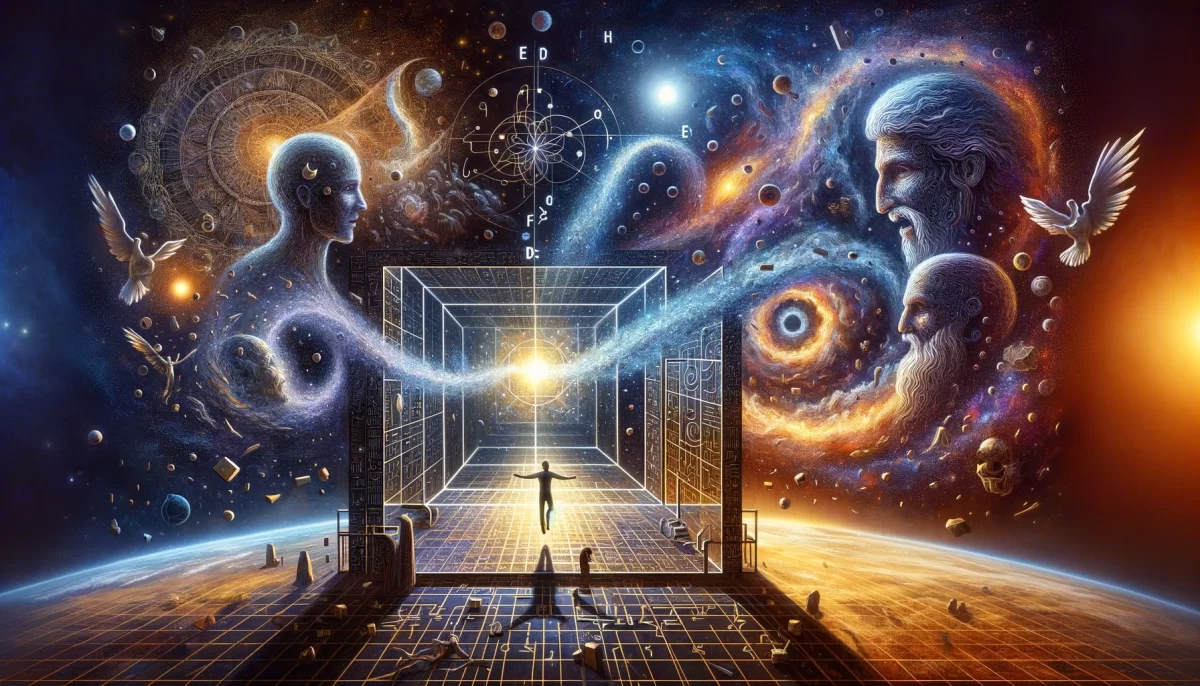



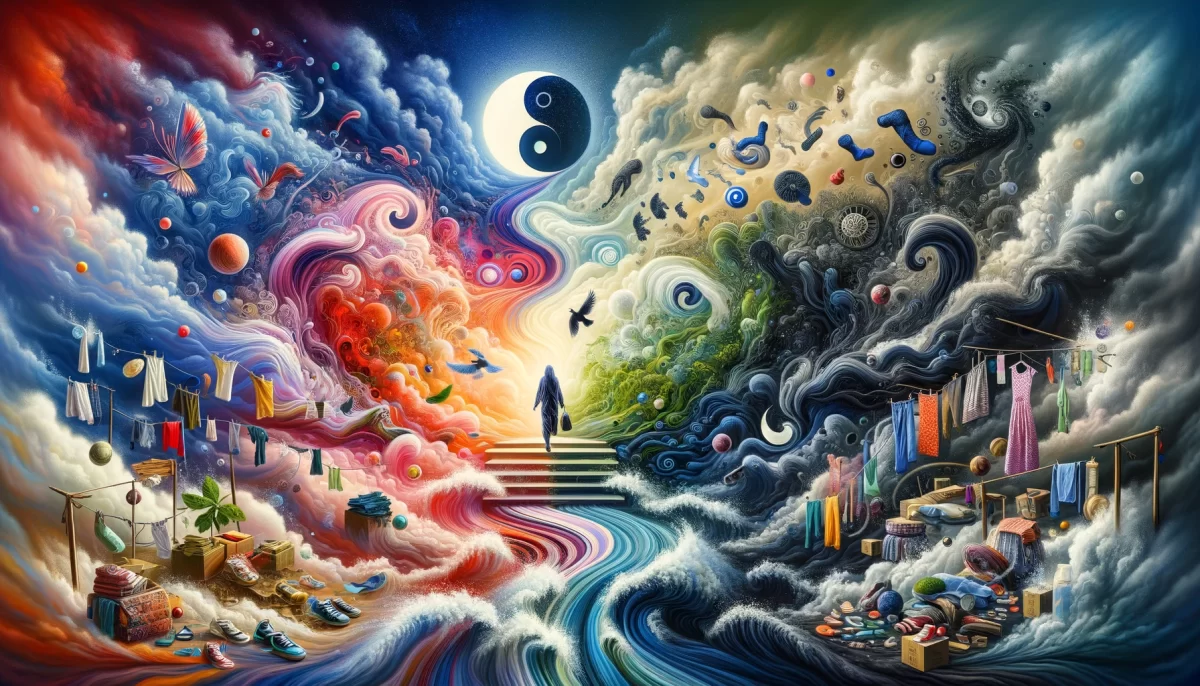
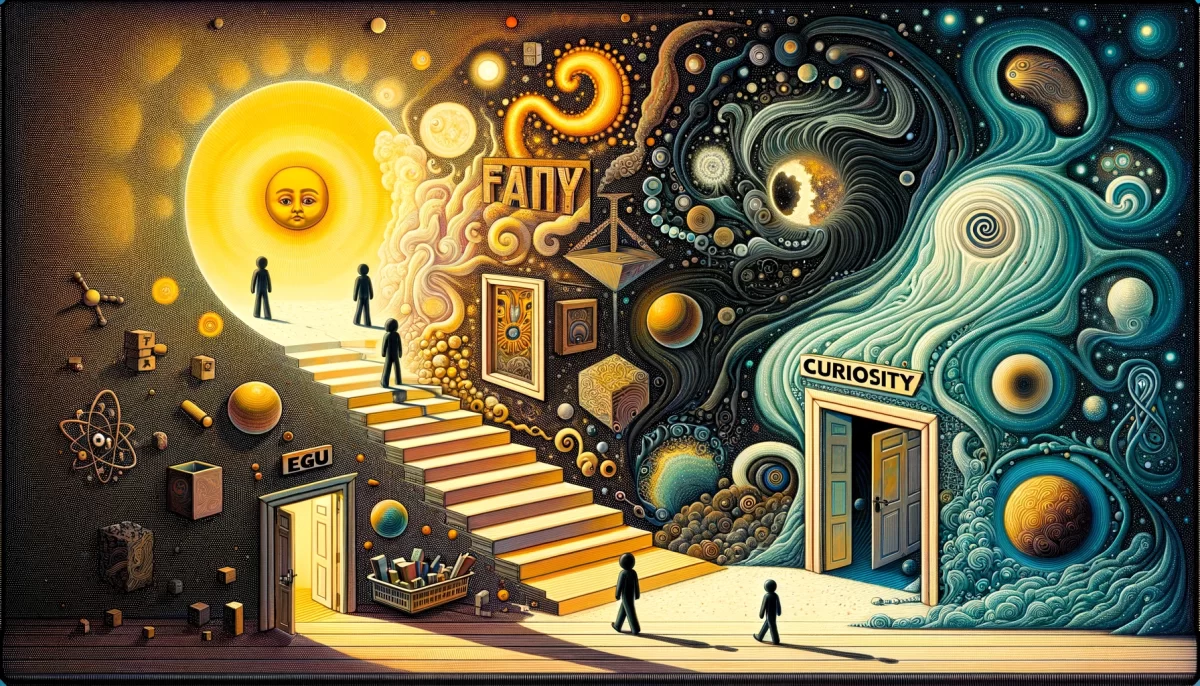

Leave a Reply